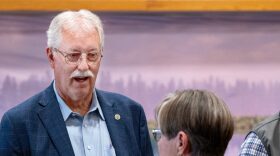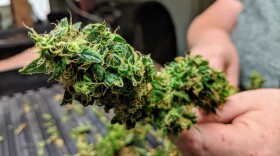-
The extra $25 million for the Kansas Water Plan would come from the State General Fund.
-
The Prairie Band Potawatomi Nation is one of the first hemp fiber processors in Kansas, and wants the investment to benefit both the tribe and the environment. The new products include insulation and compostable cutlery.
-
“H5 bird flu is widespread in wild birds worldwide and is causing outbreaks in poultry and U.S. dairy cows with sporadic human cases in U.S. dairy and poultry workers,” according to CDC.
-
A new documentary profiles ranchers in Greenwood County, Kansas, including a young couple trying to make a go of it as ranchers and small business owners in rural Kansas.
-
Kansas hemp growers and processors say the new, stricter federal law could derail the entire industry. The state has grown to one of the top five hemp producing states in the country.
-
Ranchers, lawmakers and farmers' unions are sounding the alarm over a Trump administration plan to increase beef imports from Argentina.
-
The U.S. Department of Health and Human Services on Sunday reported the first human case in the United States of travel-associated New World screwworm, a flesh-eating parasite, from an outbreak-affected country.
-
Sure, it's hot. But things were a lot worse 151 years ago. Not only was there no air conditioning, but in 1874, Kansas was under attack - from giant swarms of grasshoppers. The swarms were so large they blocked out the sun.
-
Trees and shrubs are invading prairies, hurting the wildlife and making it harder to ranch. Yet it's hard to know the full extent of the problem, so Kansas State University found a way to map it out on the cheap.
-
Across much of the Midwest, the atmosphere is becoming warmer and retaining more water, leading to heavier downpours. A two-crop system called relay intercropping could help farmers buffer weather whiplash and boost profits.

Play Live Radio
Next Up:
0:00
0:00
Available On Air Stations










